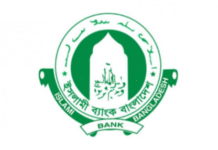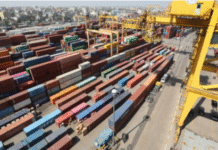When Finance Minister AMA Muhith presents the budget in parliament tomorrow, he will likely gloat about it — Tk four lakh crore in size — which is 26 percent bigger than the one for the outgoing fiscal year.
Not that presenting a big budget is of great significance for Muhith; he has been doing it for the past few years. In fact, it is under his tutelage that the budget has risen from below Tk one lakh crore in 2009 to Tk four lakh crore this time around.
But the stark challenge that the most seasoned chief financial officer of the state would have to face this year is sourcing the huge additional revenue to foot the budget expenditures. And he is banking on expanding the scope of VAT, an indirect form of taxation that has direct bearings on the life and livelihood of every consumer.
Traders, businesspeople and the public are equally worried about the fallout of imposing a 15 percent flat value added tax (VAT) for all.
The government, however, seems confident with its newfound philosophy of garnering more revenues from the middleclass and from the wealthier section of the society, to provide food benefit and safety net cushion to the poorer section.
“In 2001, I retired from my active life a most frustrated man… Now I am very happy. All dreams have come true,” Muhith told reporters on Saturday.
To meet the huge expenditure, the total revenue will have to be increased by 29 percent to make it around Tk 2,88,000 crore. A big chunk of it will come from the National Board of Revenue (NBR), which is eyeing a 34 percent enhanced collection of Tk 2,48,000 crore.
The target for both the VAT and tax collection has been set at 40 percent higher than that in this year’s revised budget.
Economists and businessmen strongly oppose the government stance on VAT on grounds that it will push up commodity prices and add to the suffering of people.
But Muhith is hell-bent on fully implementing the VAT law, which came into force in 2012. “I hope there will be no uproar once you see the budget.”
Under the VAT law, there will be no tariff once it becomes fully effective. Tax will be much higher for tariff value-based goods.
For example, VAT on MS rod is realised at production level on the basis of tariff value. At present, tariff value on MS rod is Tk 6,000 and VAT amounts to Tk 900 per tonne. Market price of this rod is Tk 50,000 to Tk 60,000.
When the new law comes fully into effect, the tax would be Tk 7,500 instead of Tk 900 now. Prices of other tariff value-based products will go up in the same way.
The current VAT rate is not uniformed.
So under the 15 percent flat rate, or even if it finally stands at 12 percent under pressure from businesses, prices of all products will substantially increase.
At present, various rates of supplementary duty are imposed on 1,362 products at import and supply levels. Under the new law, supplementary duty can be slapped on a maximum of 170 goods and three services. Businesses fear that reduction of supplementary duty may result in lesser protections of local industries.
The government is going tough on the VAT issue in a fiscal year that is only months away from the next general election, due at the end of 2018.
Though it may be politically risky, the government is walking the tight rope as it is commitment-bound to the International Monetary Fund (IMF) from which it took a $1-billion loan in 2012.
That money came with some reform conditions. Besides, Muhith considers the 2017-18 FY as his last effective budget before the next one, which will directly overlap the election period.
In efforts to allay the fear, Muhith as well as NBR officials said they would exempt many products used by the poorer section of people from the VAT net.
The finance minister also assured that they identified several goods for imposing supplementary duty so that the local industries are not affected.
At the moment, out of the eight lakh business firms, only 32,000 pay VAT. The government plans to increase the number to 50,000, he added.
Tax-free income is also expected to go up slightly. But wealth surcharge is being increased in every ceiling, as Muhith already indicated his plan to tax the rich more.
It would be interesting to observe how Muhith cuts the balance.
The main focus of Muhith’s 9th consecutive budget would be on speeding up implementation of some mega infrastructure projects and boosting private investment to create more jobs.
He would project an economic growth of 7.4 percent in the coming fiscal year as the government seeks to inject life into stagnant private investment and generate employment opportunities, say finance ministry officials.
The government’s main target is to finish the construction of the Padma Bridge, which would connect the country’s south-western part with the capital. Once completed, it would boost economic output by up to 2 percentage points.
Of the total budgetary outlay, Tk 153,331 crore would be set aside for development expenditure and the rest for non-development expenditure.
Salaries and allowances of government staff, interest payment and subsidies would account for more than half of the non-development expenditure.
Source: The Daily Star









